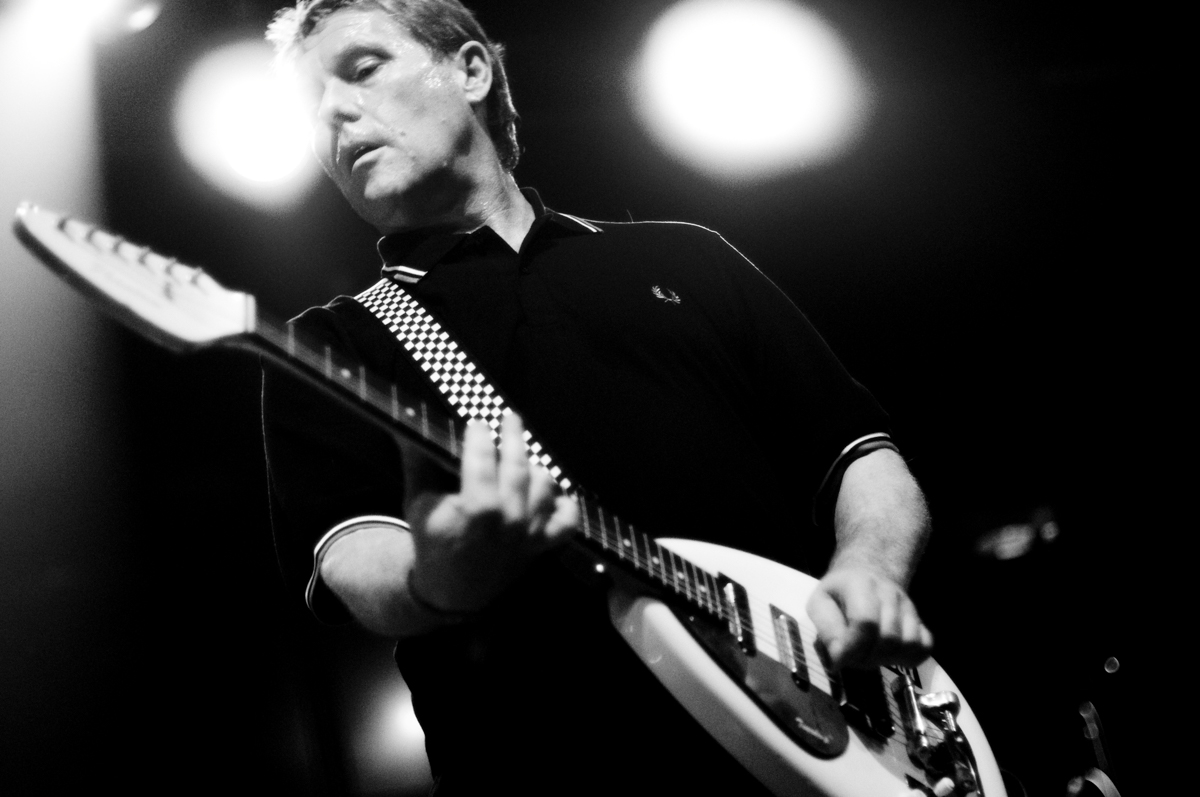Dave Wakeling Interviewed
English Beat Founder Talks Past and Present Ahead of Libbey Bowl Concert

Dave Wakeling founded The Beat — known in the U.S. as The English Beat — in the post-punk period of the late 1970s, after the Sex Pistols had kicked opened the doors and unleashed a sense of DIY freedom of expression to a plethora of talented young U.K. bands. Along with its contemporaries The Specials and The Selecter, The Beat quickly rose to the top of the British two-tone ska movement, which stressed positiveness, unity, and racial equality during the turbulent Thatcher era.
Releasing three classic albums in the early ’80s — I Just Can’t Stop It, Wh’appen?, and Special Beat Service — The Beat’s U.K. hit singles included “Mirror in the Bathroom,” “Best Friend,” “All Out To Get You,” and “Save It For Later.” After the first iteration of The Beat broke up, Wakeling, along with his co-vocalist/emcee, the late, great Ranking Roger, went on to form the short-lived but much-loved General Public — still fondly remembered for the Top 40 hit “Tenderness.”
These days Wakeling continues to tour with a new incarnation of The English Beat. In advance of his upcoming Libbey Bowl concert, I spoke by phone with the seasoned ska troubadour about The Beat’s classic lineup, the two-tone movement, Pete Townshend covering “Save It for Later,” and his latest album.

The original iteration of The Beat had a special chemistry. How did it come about? The first person that we met that played that instrument became that player of that instrument in the band. Me and Andy [Cox] started, and I put an advert in the paper for a bass player saying: “shake some action,” thinking, if anybody knew who The Flamin’ Groovies were, they must be all right. Only one person answered and that turned out to be the genius David Steele. … [Then drummer] Everett [Morton] came ’round. The same thing happened all the way down the line. Saxa [Lionel Augustus Martin] played the saxophone, “Blockhead” [Dave Wright] played the keyboards [and co-vocalist/toaster “Ranking Roger” Charlery joined the group after drumming for punk band [The Dum Dum Boys]. It all just fit into place kind of magically — almost too magically. … You felt this isn’t gonna last. [Laughs.] But it had a time and a place and a purpose. And I think in the main fold it fulfilled it.
What was The Beat’s connection to The Specials, The Selecter, and other two-tone U.K. ska bands? Coming off the back of punk, it had a decidedly noncompetitive vibe about it, so we used to like touring together and taking turns being the headliner. … The Specials would all come on for the last song, or we’d all come on for the last song with them. For a little while there, it looked as if the promise of punk and the dream of two-tone was actually coming to reality. Over the next few years, money got in the way, I think, and some people in some of the bands got very rich, and some people in the other bands didn’t get rich at all and felt aggrieved by that. We managed to battle on a little longer because we decided to share everything. We were of a socialist ilk — at least with each other. Everett, the drummer, said something very nice to me a few weeks ago. He said: “We shared, Dave, and you can hear it in the tracks — that’s what sets them apart from the other bands.”
What’s the story behind The Who’s Pete Townshend deciding to cover “Save It for Later”? Funnily enough, him and Robert Plant said it was one of their favorite songs of all time, which thrilled me! He phoned me up on a Saturday morning, and I thought it was somebody from General Public [playing a prank]. He says: “Hello, Dave, it’s Pete Townshend. I’m sitting here with Dave Gilmour, and we’re working on your song ‘Save It for Later,’ but we can’t work out the tune.” [Laughs.] I’d been trying to make a tuning called DADGAD that John Martyn had used. But I tuned it playing along to the [Martyn] record — and I thought I’d got it right, but the middle G string I had accidentally tuned up to an A. So instead of DADGAD, I had DADAAD. [Pete and Dave] thought it was DADGAD and they couldn’t figure it out. So, I just howled with laughter after that because Pete Townshend had been one of my first guitar heroes — him and Jimi Hendrix. And then Dave Gilmour had become one of my later guitar heroes, and just the notion that two of your heroes were trying to learn your song but couldn’t work out the tuning because it was too complicated for them was just about as wonderful as it gets. And then Pete came out with his cover — and it was lovely. And [Townshend] said something that stuck with me: “Songwriters, Dave, are the luckiest people in the world. It just doesn’t always seem that way.” [Laughs.] And I’m still pondering that.
I love “Redemption Time” from your new record Here We Go Love. What can you tell me about the album? Well, it did much better than I expected—you don’t really know who buys records nowadays, but it did very well. The reviews for it were absolutely superb. … I could’ve written ’em myself! The album told a story — not literally — but the lyrics hung together so that one emotion led effortlessly into the next one and gave a sense of completion … although it was more like an abstract painting than a figurative one.
4•1•1 | The English Beat will play Friday, July 26, 7 p.m., at the Libbey Bowl (210 S. Signal St., Ojai). Call (888) 645-5006 or see libbeybowl.org.




You must be logged in to post a comment.